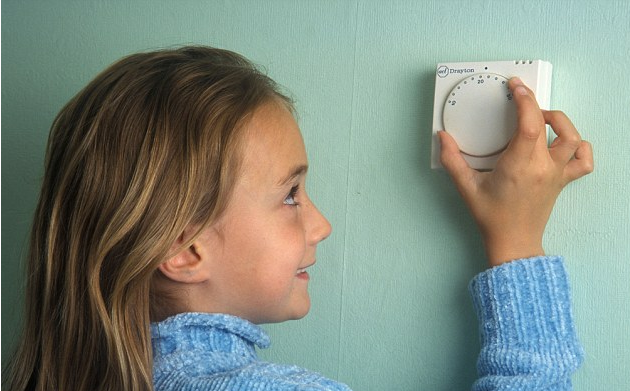An 'eternal summer' created by home heating and lighting may be disrupting seasonal rhythms in the human body with the risk of illness or even premature death, researchers say.
研究人員指出,由家庭供暖和照明設(shè)備創(chuàng)造的“永恒夏日”可能會(huì)擾亂人體內(nèi)部的季節(jié)節(jié)律,有著導(dǎo)致人們患病甚至過早死亡的風(fēng)險(xiǎn)。
Scientists fear that the prevalence of warm houses and sustained contact with bright lights could supress important genes which have evolved to activate at different times of the year.
科學(xué)家們擔(dān)心溫暖宜人的房子的普及和持續(xù)的明亮燈光可能抑制人體重要基因的活動(dòng),這些基因已經(jīng)進(jìn)化出在一年當(dāng)中的不同時(shí)期激活的機(jī)制。

They think perpetually warm dwellings may be a recipe for disaster as the sensitive proteins – some of which kick in during the winter to fight off common diseases like flu – are fooled into thinking it is still the summer and do not activate.
他們認(rèn)為永遠(yuǎn)溫暖的房屋有可能導(dǎo)致災(zāi)難性后果,因?yàn)槊舾械鞍讜?huì)誤以為時(shí)間還是夏天而不激活自己發(fā)揮作用,其中有些敏感蛋白會(huì)在冬季激活以抵抗流感等常見疾病。
Scientists at the University of Cambridge have previously found that a quarter of human genes display seasonal variation, including the protection against various infectious diseases.
劍橋大學(xué)的科學(xué)家此前已經(jīng)發(fā)現(xiàn)人體內(nèi)四分之一的基因呈季節(jié)性變化,包括抵抗各種傳染性疾病的侵襲。
Now a study says that the efficacy of these genes could be hampered by modern western lifestyles.
現(xiàn)在一項(xiàng)研究表明,這些基因的效力可能會(huì)受到現(xiàn)代西方生活方式的阻礙。
Dr Tyler Stevenson, a senior lecturer at the University of Aberdeen, said: "The real take home message is that seasonal rhythms are pervasive.
阿伯丁大學(xué)(University of Aberdeen)的高級(jí)講師泰勒·史蒂芬森(Tyler Stevenson)博士指出:“真正重要的信息就是季節(jié)節(jié)律是普遍存在的。”
"Just like daily rhythms which tell us to sleep at night, a similar thing is happening seasonally.
“就像日常節(jié)律告訴我們要在晚上睡覺一樣,季節(jié)節(jié)律也發(fā)揮著類似的調(diào)節(jié)作用。”
"But over time these seasonal signals are dampening down.
“但是隨著時(shí)間的流逝,這些季節(jié)信號(hào)都被抑制了。”
"During the twentieth century our species has developed technologies that allow precise light and climate control over our living environments and humans in developed societies now spend the vast majority of their lives in conditions that mimic 'summer-like' environments.
“在20世紀(jì),我們?nèi)祟悓?shí)現(xiàn)了對(duì)生活環(huán)境進(jìn)行精準(zhǔn)的燈光和氣候控制的技術(shù),現(xiàn)在發(fā)達(dá)國家的人們生命中的大部分時(shí)間都在一種‘模擬夏日’的環(huán)境中度過。”
"These so-called eternal summers are characterised by light and temperature controls that lack seasonal rhythmicity.
“這種所謂的永恒夏日的特點(diǎn)就是缺乏季節(jié)節(jié)律性的燈光和溫度控制。”
"Seasonal changes in environmental variables play a significant role in the regulation of many physiological and behavioural processes.
“環(huán)境變量中的季節(jié)變化在許多生理和行為過程的調(diào)節(jié)上發(fā)揮重要作用。”
"Presently many of us no longer live in accordance with the naturally occurring variation in geophysical rhythms."
“現(xiàn)在許多人不再依照地球物理節(jié)奏的自然變化生活。”
The research appears in the journal Proceedings of The Royal Society B.
此研究登載在期刊《英國皇家學(xué)會(huì)學(xué)報(bào)B輯》(Proceedings of the Royal Society B)上。(注:B指的是 BiologicalSciences,生物科學(xué)領(lǐng)域)












